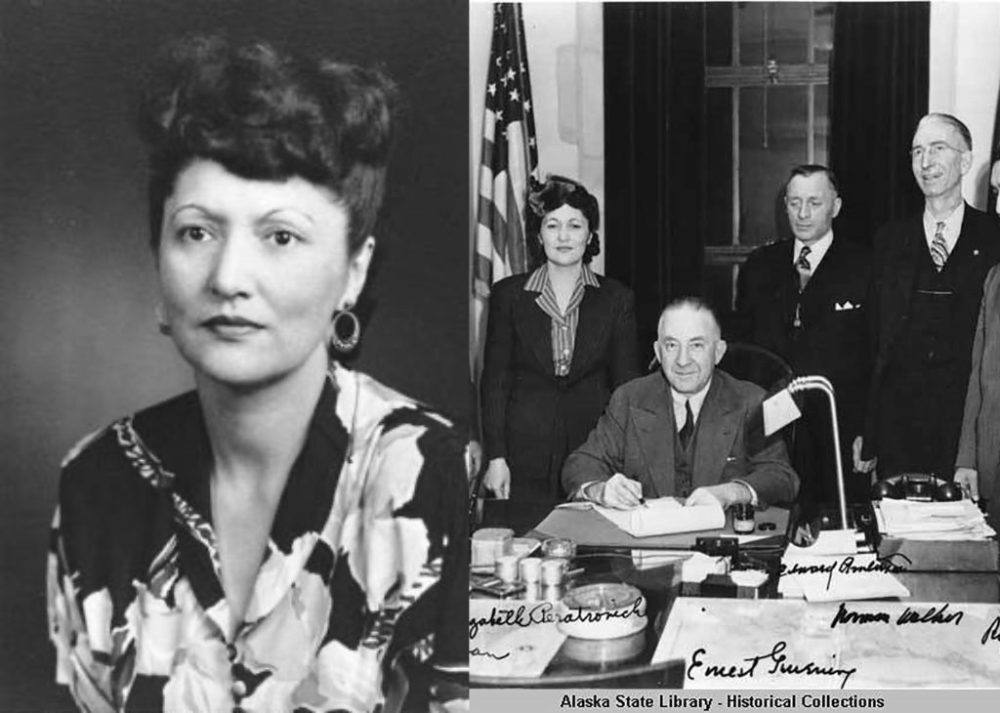
IPR is featuring research and some of the many Indigenous pioneers who have had an impact on the field of public relations in celebration of Native American Heritage Month.
Elizabeth Wanamaker Peratrovich was born in Petersburg, Alaska on July 4, 1911. She was adopted by Andrew and Mary Wanamaker and attended the Western College of Education in Bellingham, Washington.
In 1933, she married Roy Peratrovich, also a member of the Tlingit Nation, and in late 1941, they moved to Juneau where Elizabeth became grand president of the Alaska Native Sisterhood. After witnessing racism and discrimination toward Indigenous people by a business in Juneau, Peratrovich wrote to her governor and thus started campaigning to pass an anti-discrimination bill through the Territorial Legislature.
In 1943, Peratrovich’s anti-discrimination bill failed in the House by a tie vote. Despite this, she traveled around Alaska, urging Indigenous people to join a fight for justice. In 1945, the House passed the bill. It went on to pass in the Senate in a 19 to 5 vote, becoming the country’s first anti-discrimination law. Peratrovich continued to work hard for the equality of all Alaskans alongside her husband for the rest of her life. She died on Dec. 1, 1958.
References:
Who Is Elizabeth Peratrovich? The Story Behind the Country’s First Anti-Discrimination Law
Civil Rights Heroine, The Story of Elizabeth Peratrovich



